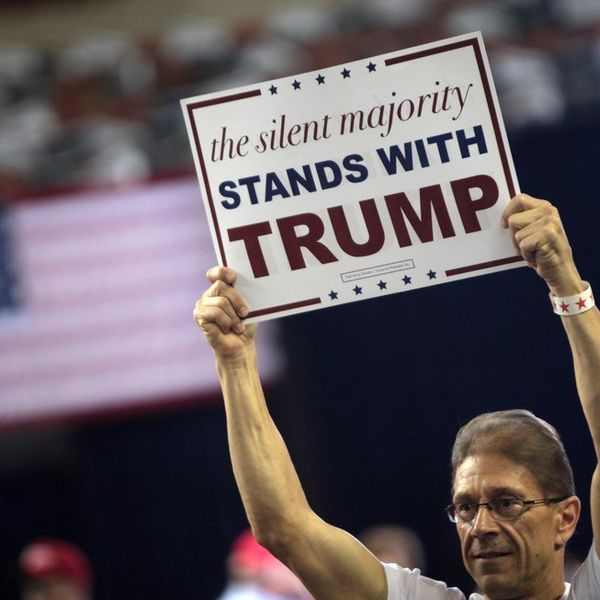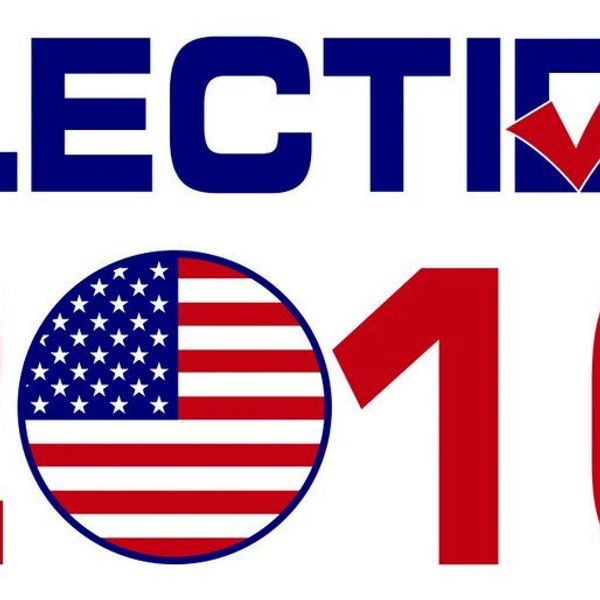Earlier this year, a poll found that about two-thirds of Americans believe that their country is on the wrong track. For many Americans who believe this, Hillary Clinton tends to serve as an avatar of Washington D.C.’s wrongheaded establishment, and Donald Trump as a would-be destroyer of the status quo.
Some Americans see the status quo as so totally corrupt that literally any change would be an improvement; for them, the idea of Trump as a simple political wrecking ball is deeply appealing. That view is mainly right-wing, but there are plenty of Independents and Democrats who like much of what Trump seems to offer: a presidency to thwart an economic elite that always takes globalization over robust American work and wages and a foreign policy establishment that would always rather be meddling somewhere new than, say, renegotiating America’s treaty commitments to well-off countries.
Unlike many of Trump’s most ardent right-wing supporters, these Independents and Democrats tend to cringe at Trump’s attitudes toward (for example) Mexicans and Muslims, but in many cases would be willing to stomach bigotry for the sake of practical policy improvements. But they’re also, I think, much more likely to believe that presidential destruction could become excessive and that four or eight more years of the status quo would be better than an [unrelenting and] undiscriminating tornado of Trumpist destruction. Trump, who likely needs these voters’ support to win in November, needs to convince them that the destruction he’d wreak in Washington would be fruitful: that he would, paradoxically, be a constructively destructive force for the American people. He needs to show that he would destroy just the right things while leaving certain other things upright.
In other words, it must be clear that he’s willing to do his homework and figure out the best ways to carry out his promises of change. He’s long been known for fixating on things that stroke his ego, from his business acumen to the easy applause that comes with his favorite political claims. To win the Independents and Democrats that I’ve described, he needs to show that he’s able and willing to keep focused on things that don’t immediately stroke his ego; he needs to show some capacity to develop his ideas beyond bluster and to demonstrate how his destruction would be carefully-targeted rather than total annihilation.
The nationalist revolutionary Trump needs to show a small-c conservative willingness to leave things be except when they clearly need change. He needs to demonstrate, in certain respects, what the British philosopher Michael Oakeshott called a preference for “the familiar to the unknown [and] the tried to the untried.”
Many Americans view the political status quo like a stocked refrigerator that’s been abandoned for a couple months: everything was put in for a reason, but it’s largely gone rotten and needs to be removed and replaced. The proper tools for removal are a good pair of gloves, one’s senses of sight and smell, a garbage bag. The work of figuring out precisely what’s rotten may be lengthy miserable, but in the end you both spare the contents that are still good and avoid damaging the fridge.
It would be better TV, though, to heave it all out with a few swift strokes of a big shovel. And since spectacle is what matters for Trump, why should we expect him to care if the shovel bursts open the spoiled milk and shatters the bottles of perfectly good beer, and perhaps busts up the shelves and walls?
Ultimately, the Independents and Democrats I’ve described largely won’t vote for Trump unless they’re convinced that he’s willing to do the unglamorous, non-ego-stroking work of actually improving his understanding of how politics works. It will need to seem, as Ross Douthat recently put it, that Trump can be trusted to “actually execute the basic duties of the presidency.”
Trump’s conduct at the first presidential debate – flatly failing to actually answer plain policy questions, and trying to compensate for his lack of constructive ideas through reflexive bullying – gives no hint that Trump has actually improved at doing his homework in over a year of campaigning. If he wants to win, he’ll almost certainly have to improve. There’s increasingly little reason to suspect that he will.





















